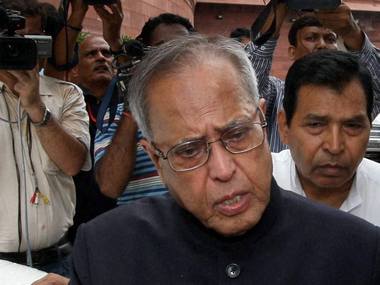The countdown to D-Day (16 March), when Finance Minister Pranab Mukherjee presents his Union Budget proposals to Parliament, has begun. As usual, various industries have started issuing their wish-lists for the Budget over the past few days .
Strangely enough, or perhaps not so strangely, one theme seems to be almost common among these wish-lists. Everyone seems to think the government should give top priority to bringing its finances under control. In other words, ‘fiscal consolidation’ should be Pranab-da’s top task.
Why? Because the government’s fiscal deficit (the gap between government revenues and expenditure) is likely to increase to an alarming 5.6 percent of GDP by the end of March 2012 from the 4.6 percent estimated at the start of the current financial year.
Why does that matter? It matters because it has significant implications for interest rates and inflation, which, as we all know, can badly affect an economy if they are too high.
When a government spends more than it earns (by way of tax revenues), it needs to find ways to pay for that excess spending. Typically, that happens in two ways: one, the government borrows from the financial markets. In theory, that, however, tends to reduce the amount of funds available for the private sector, which, in turn, raises the cost of funds. When interest rates are high, they discourage investments.
[caption id=“attachment_223856” align=“alignleft” width=“380” caption=“Fiscal consolidation may be an important target for the government, but winning votes (via populist schemes) is an even better one. PTI”]
 [/caption]
[/caption]
The government can also print more money to pay for its excessive spending spree, but that has its own unhealthy side-effect: it creates inflationary pressures. When money supply increases too rapidly, it becomes a case of “too much money chasing too few goods”, which raises overall prices.
In either case, a high fiscal deficit has deleterious effects on an economy.
According to a recent report by Goldman Sachs, India’s general government deficit (centre and states) is expected to reach 9 percent in the current financial year, largely due to tax revenue shortfalls and higher-than-estimated fuel subsidies. That’s one of the highest fiscal deficits among growth economies, the brokerage says.
It’s a worrying situation and everyone, including the government, is aware of it. In a recent interview with Wall Street Journal, Reserve Bank of India governor D Subbarao also noted that the lack of fiscal consolidation was making it difficult for the central bank to tame inflation.
So how will the government tackle the fiscal deficit? In two ways: it can raise taxes and cut expenditure on some fronts.
Goldman Sachs thinks that on the tax front, excise duties are likely to rise to 12 percent from 10 percent and a negative service tax list will be introduced. (A negative list will only list those services that are exempt from service tax; every other service will be taxable.)
On the expenditure side, there’s hope that some subsidies will be cut. RBI Governor, in the WSJ interview, thought that subsidies on LPG (cooking fuel) could be easily removed. “If there is subsidy in LPG, it’s a subsidy that’s not going to the poor,” he said. “It’s a subsidy that’s going to people who can afford LPG, which is certainly not the poor.”
Power subsidies could also be improved, he said. “Power subsidies are given by state governments according to people who have land, whereas the landless, who are poorer, don’t get any subsidy at all. There’s got to be some attention paid to the poverty impact of subsidies and targeting subsidies with an anti-poverty focus,” he told WSJ.
Still, it would be best not to get your hopes up too high. With Parliamentary elections just two years away, and a mammoth money-guzzling Food Security Bill on the anvil (estimated to cost about Rs 1,00,000 crore a year), don’t expect the government to tighten its purse strings too much.
Fiscal consolidation may be an important target for the government, but winning votes (via populist schemes) is an even better one.
)